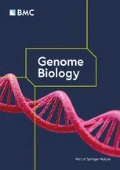Caloric restriction (CR) is known to extend life-span in many species, and is thought to work by slowing metabolism and thus the generation of toxic reactive oxygen species. In the 22 September Science Lin et al. report that yeast also grow longer under conditions of CR (Science 2000, 289:2126-2128). Yeast on low-glucose plates, or with a defect in the glucose-activated protein kinase A (PKA) pathway, divide for more generations before senescing. The histone deacetylase and silencing protein Sir2p is known to affect aging, and is required for the CR effect. Maintenance of silencing may be critical to longevity in many species, either by repressing genomic instability or by preventing inappropriate gene expression.
References
Oxidative stress, caloric restriction, and aging.
Science magazine, [http://www.sciencemag.org/]
Transcriptional silencing and longevity protein Sir2 is an NAD-dependent histone deacetylase.
The SIR2/3/4 complex and SIR2 alone promote longevity in Saccharomyces cerevisiae by two different mechanisms.
Rights and permissions
About this article
Cite this article
Wells, W. Hungry yeast live longer. Genome Biol 1, spotlight-20000925-01 (2000). https://doi.org/10.1186/gb-spotlight-20000925-01
Published:
DOI: https://doi.org/10.1186/gb-spotlight-20000925-01

